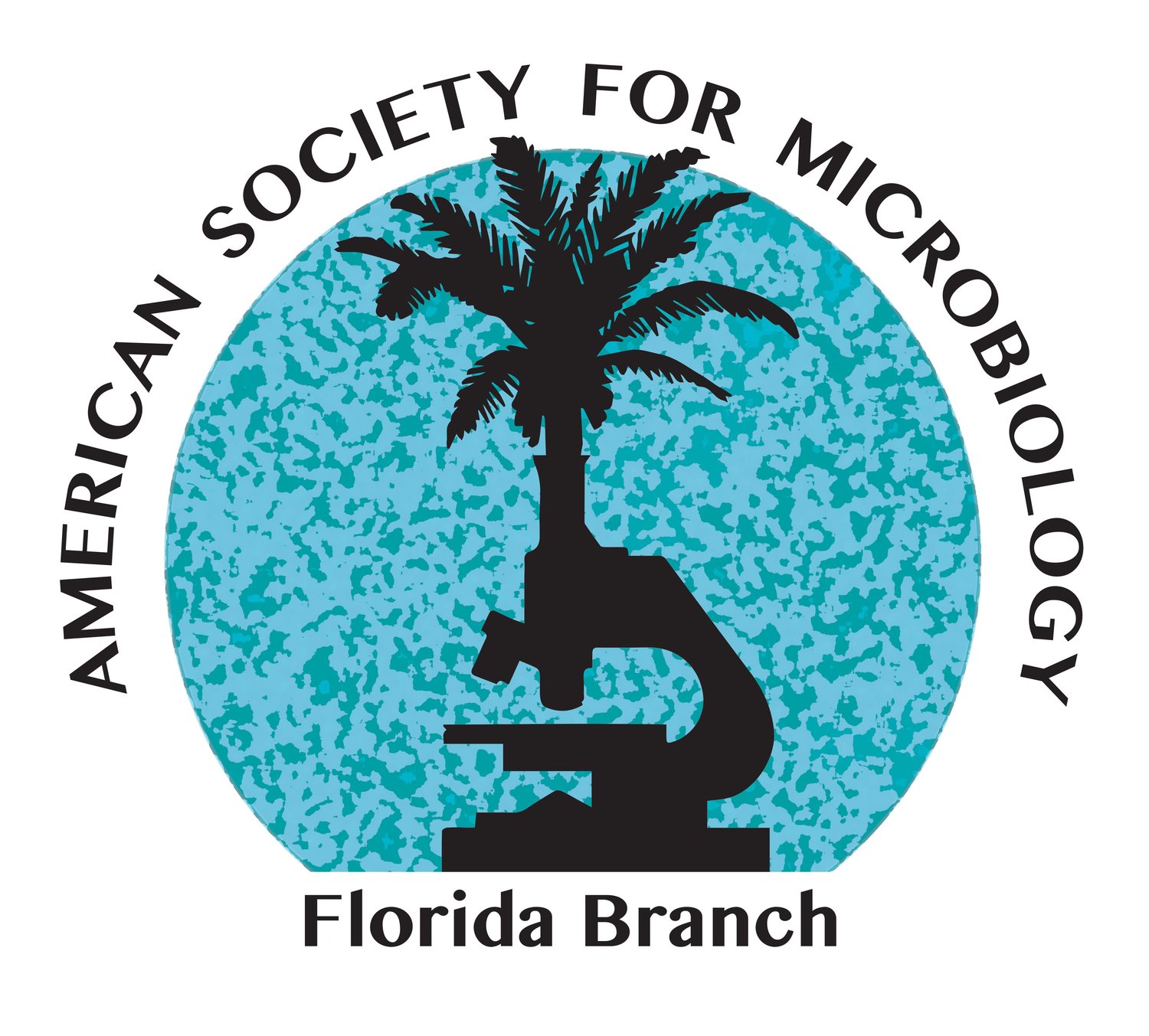Branch Officers
President:
Dr. Kimberly James
Florida Gulf Coast University
Dr. James is an Assistant Professor at Florida Gulf Coast University. Her research interests have evolved into understanding the physiology and virulence potential of Staphylococcus aureus during fermentative and anaerobic growth, and how these conditions influence virulence factor production in the host. She uses a combination of molecular, biochemical, and classical physiological approaches to probe S. aureus.
Vice President:
Dr. Aria Eshraghi
University of Florida
ariaeshraghi@ufl.edu
Dr. Eshraghi studies how highly virulent bacteria inject toxins into host cells to evade detection by the immune system and cause disease. His research group elucidates the mechanistic details of these pathways in remarkably pathogenic species within the genus Francisella. By understanding these mechanisms, Dr. Eshraghi’s trainees have discovered multiple drugs that block the growth and virulence of these deadly bacteria.
Secretary:
Dr. Bo-Young Hong
Nova Southeastern University
bhong@nova.edu
https://md.nova.edu/our-team/faculty-directory/bo-young-hong.html
Dr. Hong is currently an associate professor in the School of Allopathic Medicine at the Nova Southeastern University. She teaches clinical microbiology and immunology. Her research interests include human microbiome in health and diseases.
Treasurer:
Dr. Cory Krediet
Eckerd College
krediecj@eckerd.edu
https://kredietlab.eckerd.edu | @coryjkrediet
Dr. Krediet’s research interests lie in host-microbe interactions and specifically how mutualistic or commensal microbiota influence the host’s physiologic response to various abiotic and biotic stressors. These types of interactions are present in a wide array of systems ranging from humans and other vertebrates, to invertebrates and to plants. Tropical corals and the sea anemone Aiptasia, form mutualistic symbioses with dinoflagellate algae (in the family Symbiodiniaceae) and other microbial partners (bacteria, archaea, viruses, and fungi). Dr. Krediet’s research aims to better understand how associated microbiota affect the physiology of the coral holobiont and what mechanisms underpin the overall success of the symbiosis
Social Media Coordinator:
Dr. Steven Fiester
Florida Gulf Coast University
stevenfiester@gmail.com
Dr. Fiester's research interests primarily focus on the elucidation of factors contributing to the virulence of multidrug-resistant ESKAPE (Enterococcus faecium, Staphylococcus aureus, Klebsiella pneumoniae, Acinetobacter baumannii, Pseudomonas aeruginosa and Enterobacter species) pathogens with special attention given to Acinetobacter baumannii. Dr. Fiester's research aims to better explain the pathobiology of A. baumannii, thus uncovering targets for therapeutics. Dr. Fiester is particularly interested in the mechanisms by which A. baumannii is cytotoxic to eukaryotic cells, acquires iron under chelated conditions such as that found in the human host, translocates virulence-associated proteins to the outer membrane, secretes virulence factors and responds to environmental stressors.
Membership Coordinator:
Dr. Shannon Ulrich
St. Petersburg College
ulrich.shannon@spcollege.edu
Dr. Ulrich earned her B.S. and M.S. in microbiology and cell science from the University of Florida in 2003. During her time as an undergraduate, she worked in an environmental microbiology laboratory, and her passion for water-quality microbiology was cultivated. She then attended the University of South Florida for her Ph.D., where she developed a real-time PCR assay to detect human polyomaviruses in environmental waters as an indication of microbial water quality. Dr. Ulrich is currently a professor at St. Petersburg College, teaching a variety of courses, including biology, microbiology, genetics, immunology, molecular biology and undergraduate research.
Member at Large:
Dr. Renee Fleeman
University of Central Florida
renee.fleeman@ucf.edu
Dr. Fleeman is currently an Assistant Professor at the University of Central Florida College of Medicine, where she started her laboratory in the fall of 2022 and has successfully converted her NIH K99 Pathway to Independence Award to the R00 phase. Her lab's primary research focus is on exploring peptide interactions with bacterial polysaccharides produced by K. pneumoniae. This work not only contributes to our understanding of the fundamental biology of bacterial resistance to host antimicrobial peptides but also has the potential to inform the development of novel antimicrobial agents.
Member at Large:
Dr. Lauren Logsdon
University of Tampa
lklogsdon@gmail.com
Dr. Logsdon’s lab is interested in microbial communities in a broad variety of locations including Tampa Bay recreational waterways and the fermented foods you find in your local grocery store and farmer's market. By culturing and characterizing the microbes found together in these environments we study how these populations change over time and due to changing environmental conditions. She is particularly interested in how these microbes interact with one another through the sharing of genetic information and the production of antimicrobial substances.
Past Presidents:
Terri Ellis (University of North Florida) 2022-2024
Julie Torruellas Garcia (Nova Southeastern University) 2020-2022
Kelly Rice (University of Florida) 2018-2020
Shannon Ulrich (St. Petersburg College) 2016-2018
Jamie Foster (University of Florida) 2014-2016
Mya Breitbart (University of South Florida) 2012-2014









